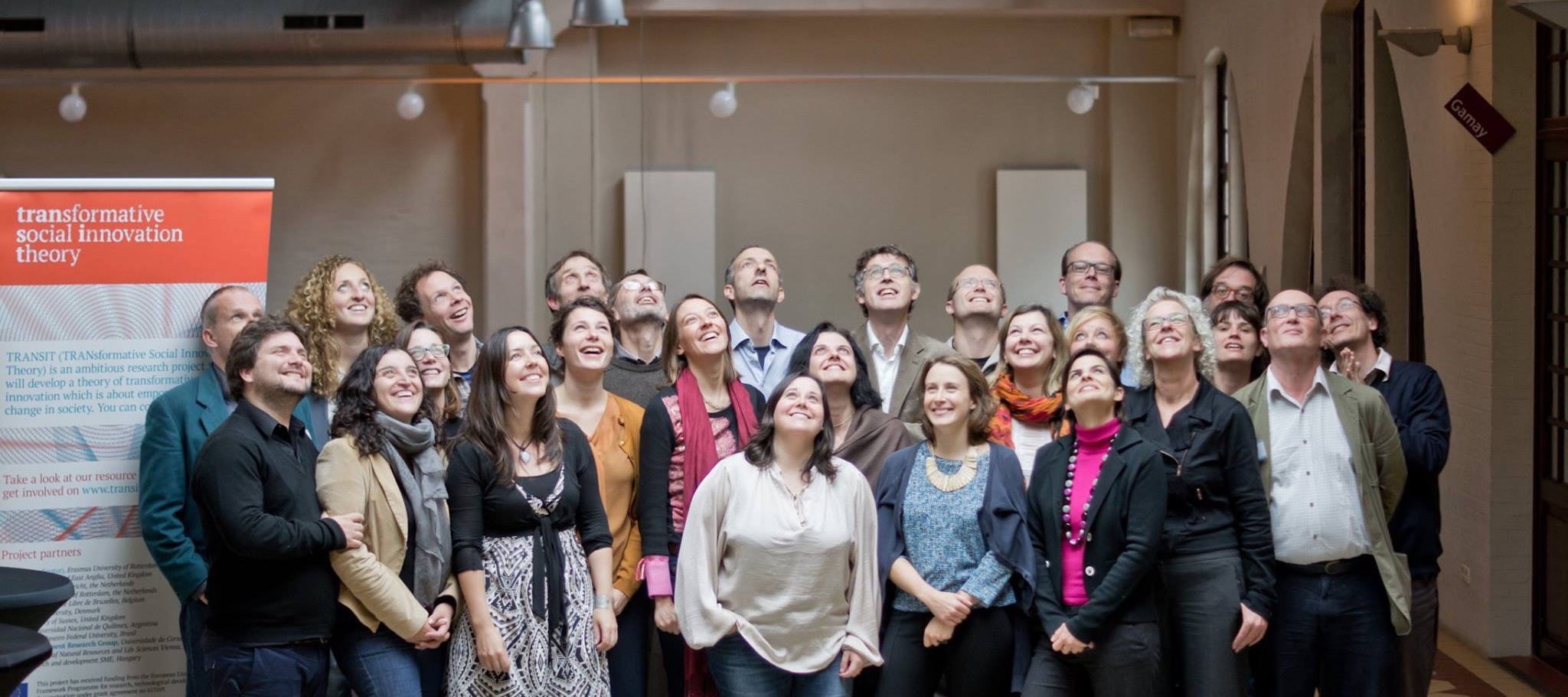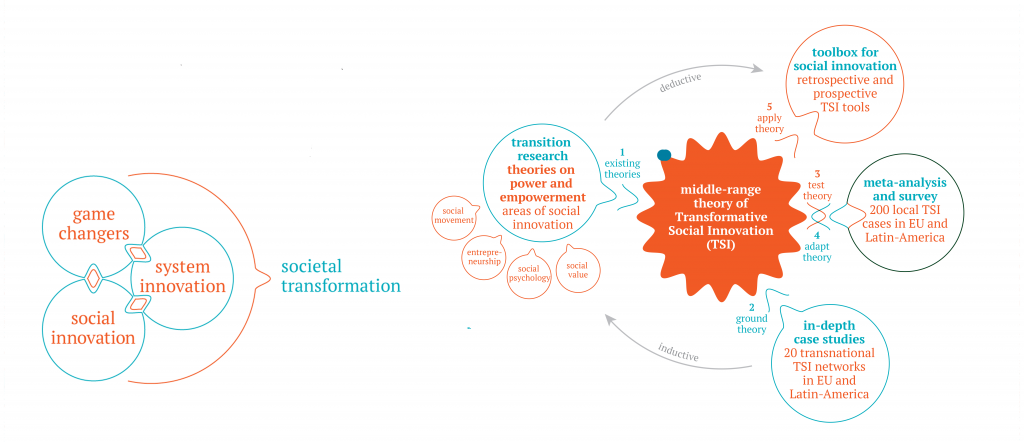We are developing a theory on Transformative Social Innovation, involving new ways of doing, organizing, framing, and/or knowing.
What is it?
TRANSIT (TRANsformative Social Innovation Theory) is an ambitious research project that will develop a theory of transformative social innovation which is about empowerment and change in society. It is co-funded by the European Commission and runs for four years, from January 2014 until December 2017. TRANSIT will utilize a research method that encourages feedback from social entrepreneurs and innovators, policy makers, and academics to develop a theory with practical relevance. The theory will be based on insights from other theories, e.g. transition theory, social movement theory, and institutional theory. The research project studies how social innovation can bring about empowerment and societal transformation.
Research Approach
The theory of Transformative Social Innovation will be formulated in a dynamic and iterative process that builds on existing theory, grounds the emerging theory in in-depth case studies, and tests it through a meta-analysis of survey data. In this process, the research team continuously interacts with social innovators, social entrepreneurs, policymakers, and scientists in a number of workshops, applying and reviewing the emerging theory. Further outputs of this process include working papers, training tools, policy, and practice briefs for social innovators, entrepreneurs, researchers, and policymakers.
An embedded case study approach is used to ground and test the emerging middle-range theory on transformative social innovation. This approach combines both qualitative, in-depth case study analysis, as well as quali-quantitative comparative meta-analysis. In total, TRANSIT researches a sample of approx. 20 transnational networks.
Conceptual focus
TRANSIT is structured around 4 thematic focus areas: governance, social learning, funding and monitoring. We will develop theoretical and practically relevant insights for those thematic areas, which will form the basis for policy briefs and capacity building tools. Examples of questions that will be addressed include: what forms of governance facilitate transformative social innovation?; how can funding mechanisms become more effective? TRANSIT also zooms in on the effects of macro trends in society, such as the financial crisis, climate change and the ICT-revolution, which we refer to as ‘game changers’. It aims to develop insights about interpreting future changes (that can be used in e.g. forecasting and scenario planning tools) and about improving our effectiveness while working in changing circumstances.
Our steps in 2016
TRANSIT looks back at the end of its in-depth research phase, after a total of 20 transnational networks and 40 local manifestations across the EU and Latin America were studied. Currently, TRANSIT researchers are focusing their efforts on finalizing a broader more elaborate empirical research of 80 different local manifestations, which will feed into our Critical Turning Points (CTP) database. This database aims to collect diverse experiences of transformative social innovation processes and is planned to be published before the end of this year.
At the moment we are also amidst developing our third training tool about social learning in transformative social innovation, which will be followed by a practice brief on the same topic. Our ‘Social Learning’ workshop in June 2016, which brought researchers, practitioners, and policy makers together to discuss the notion of social learning, will be used to further enrich our upcoming publications. Finally, we are preparing a TRANSIT brief on TSI theory and transformative change, which will be a step in communicating some of our theoretical insights for policy and practice. These insights have emerged from our previous publication ‘A first prototype of TSI theory’, which was developed in 2015.
The last two years in retrospect
In May 2015 we were in the midst of preparing our second round of empirical research, in which we researched more transnational social innovation networks and local manifestations. We drew up a database for our more elaborate empirical work in which we aimed to study over 150 local manifestations of networks. At the same time, a team of researchers was dedicated to writing our first practice brief that was published in the summer of 2015. For the development of our Transformative Social Innovation-theory, we continued to integrate theoretical reviews. In November, we will had our Mid-term conference, titled ‘Social Innovation 2015: pathways to social change’, co-organized with SI-DRIVE and SCORAI-workshop, titled “Beyond’ Transition? Understanding and achieving sustainable consumption through social innovation’. By the end of 2015, we finished our second round of empirical work.In 2014, we amongst others published our first empirical materials, organized a theoretical and empirical workshop in Norwich, two workshops with social innovators and entrepreneurs, policy-makers, researchers in Argentina and The Netherlands, plus workshops on Game-changers and Governance, created two training tools and finalized the first prototype theory (see our reports).


